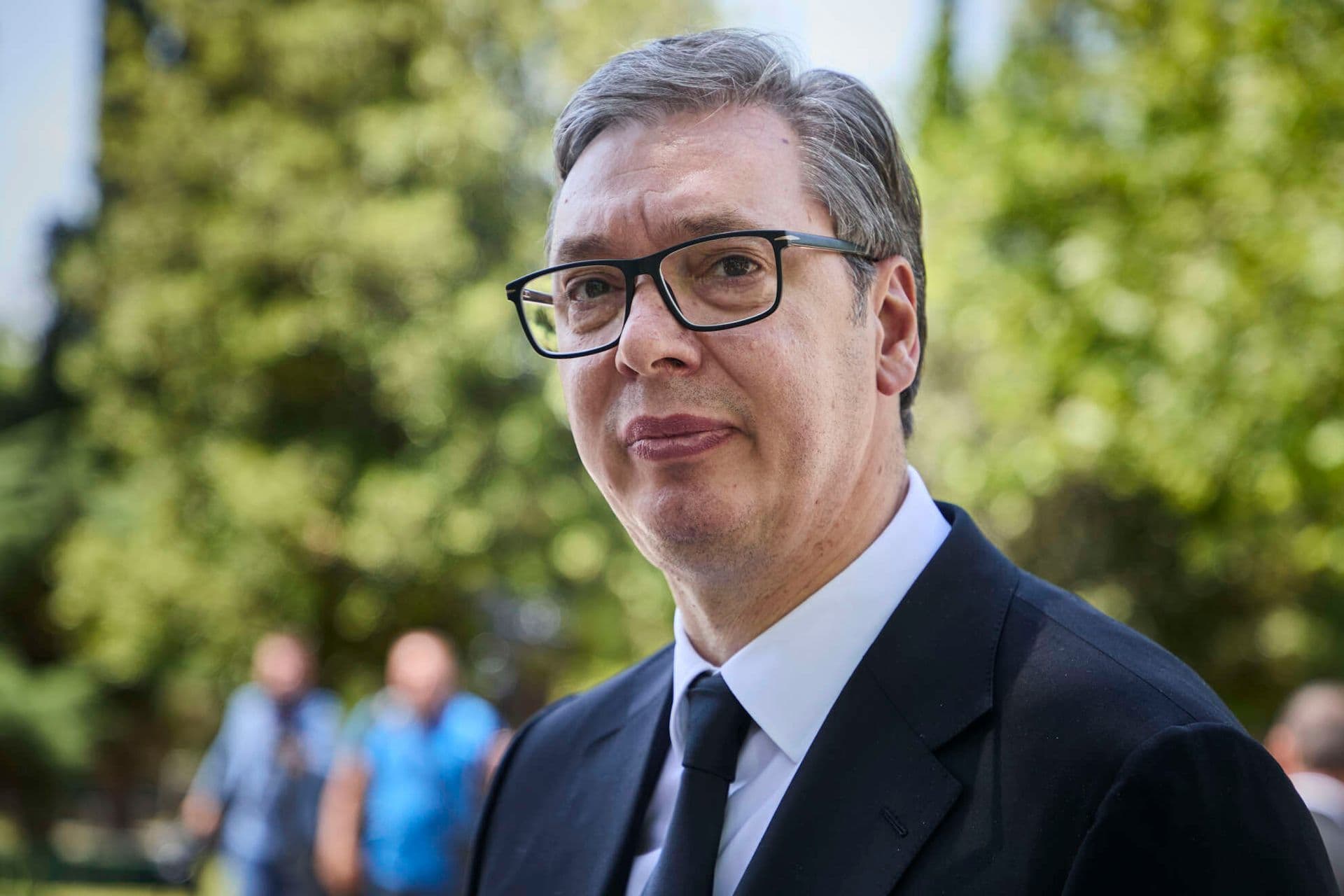Sports
Vučić Responds to Montenegro’s Claims Over Turkish Issues

In a recent statement, Serbian President Aleksandar Vučić addressed accusations from Montenegro, alleging that the Serbian government is responsible for their ongoing issues with Turkey. This response followed comments made by Rifat Fejzić, the head of the Islamic Community in Montenegro, who questioned whether Belgrade was retaliating against Turkey through Montenegro.
Context of the Controversy
During a press conference, Vučić responded to Fejzić’s claims, emphasizing that the situation is more complicated than it appears. He pointed out that there are currently approximately 13,000 Turkish nationals in Montenegro. Vučić addressed a specific incident involving violence that had occurred, suggesting that it is unfair to blame the Serbian authorities for such problems.
“The villages of Kavači and Škaljari are not located in Serbia. We are not committing acts of violence in their territory; rather, they are the ones perpetrating violence in ours,” Vučić stated. He expressed frustration over the continuous accusations directed at the Serbian government, particularly in relation to criminal activities that extend beyond the Balkans.
Broader Implications
The remarks from Vučić come at a time of heightened tensions in the region, where historical grievances often resurface. The Serbian president’s comments reflect a broader narrative of regional blame and responsibility, particularly regarding issues that involve both local and international actors.
Vučić’s assertion about the incidents involving Turkish nationals in Montenegro indicates a complex interplay of ethnic and national identities in the Balkans. As the geopolitical landscape evolves, the Serbian government’s stance may influence its relationships with both Montenegro and Turkey.
As these discussions continue, the focus remains on how such accusations may impact diplomatic relations and the stability of the region. The interplay of historical grievances and present-day politics is likely to shape the ongoing dialogue between Serbia, Montenegro, and Turkey.
-

 Health3 months ago
Health3 months agoNeurologist Warns Excessive Use of Supplements Can Harm Brain
-

 Health3 months ago
Health3 months agoFiona Phillips’ Husband Shares Heartfelt Update on Her Alzheimer’s Journey
-

 Science1 month ago
Science1 month agoBrian Cox Addresses Claims of Alien Probe in 3I/ATLAS Discovery
-

 Science1 month ago
Science1 month agoNASA Investigates Unusual Comet 3I/ATLAS; New Findings Emerge
-

 Science4 weeks ago
Science4 weeks agoScientists Examine 3I/ATLAS: Alien Artifact or Cosmic Oddity?
-

 Entertainment4 months ago
Entertainment4 months agoKerry Katona Discusses Future Baby Plans and Brian McFadden’s Wedding
-

 Science4 weeks ago
Science4 weeks agoNASA Investigates Speedy Object 3I/ATLAS, Sparking Speculation
-

 Entertainment4 months ago
Entertainment4 months agoEmmerdale Faces Tension as Dylan and April’s Lives Hang in the Balance
-

 World3 months ago
World3 months agoCole Palmer’s Cryptic Message to Kobbie Mainoo Following Loan Talks
-

 Science4 weeks ago
Science4 weeks agoNASA Scientists Explore Origins of 3I/ATLAS, a Fast-Moving Visitor
-

 Entertainment4 months ago
Entertainment4 months agoLove Island Star Toni Laite’s Mother Expresses Disappointment Over Coupling Decision
-

 Entertainment3 months ago
Entertainment3 months agoMajor Cast Changes at Coronation Street: Exits and Returns in 2025









